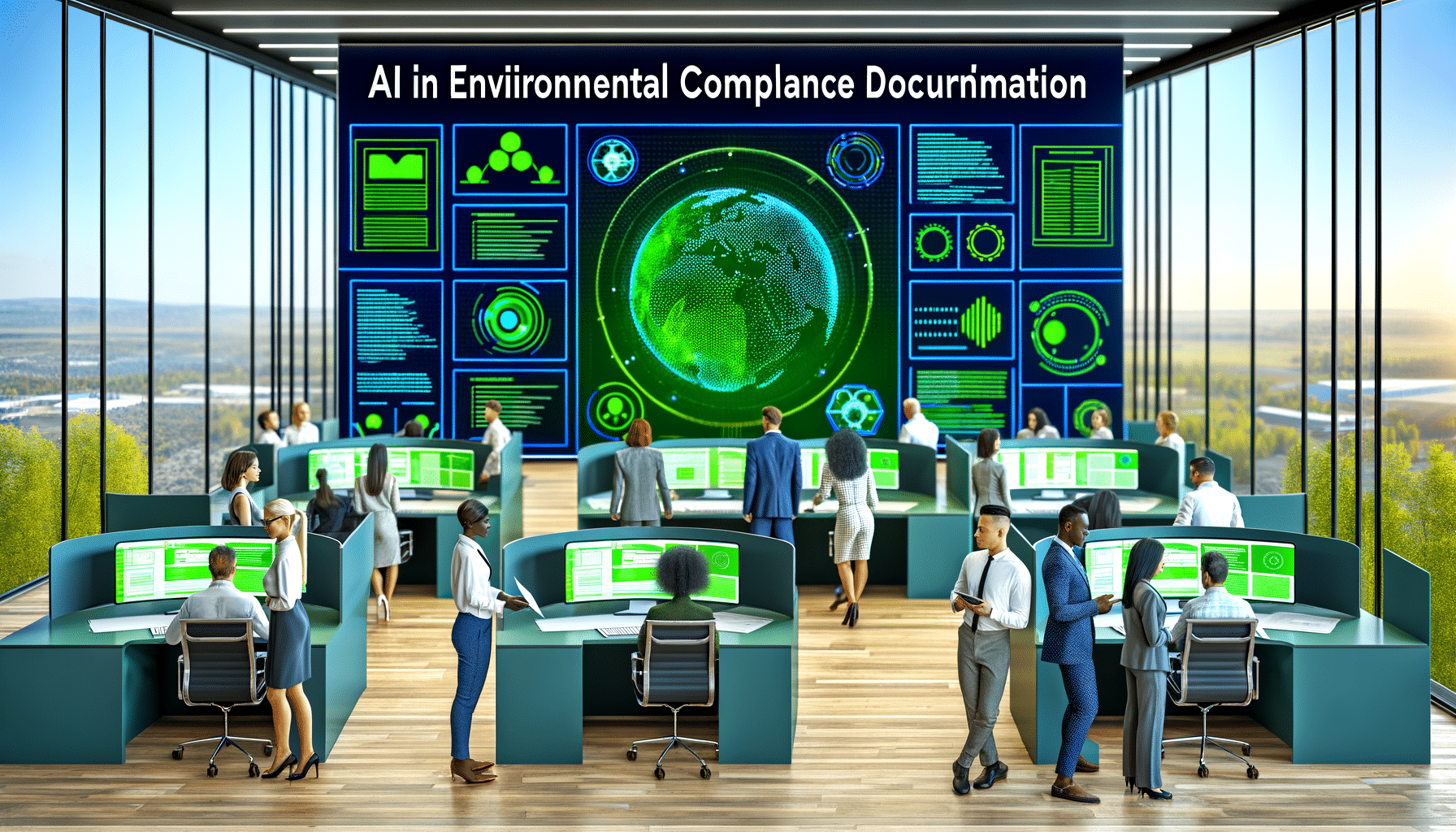- Environmental
- November 16, 2024
AI in Environmental Compliance Documentation

Transforming Environmental Compliance with AI: My Journey with RecordsKeeper.AI
As organisations navigate the intricate world of environmental compliance, the challenges can be daunting. With rapidly evolving regulations, maintaining up-to-date, accurate, and accessible records is crucial for compliance heads. This is where Artificial Intelligence (AI) significantly impacts and transforms how we handle these crucial processes. In this blog post, I’ll share insights into how AI, through platforms like RecordsKeeper.AI, is revolutionizing environmental compliance documentation.
Understanding the Complexity of Environmental Compliance
Handling environmental compliance documentation means confronting complexity on a daily basis. Organisations must adhere to a tangle of global and local regulations, ranging from emissions standards to waste management policies. Failure to comply not only results in hefty fines or legal battles but also risks damaging reputations and losing stakeholder trust.
Efficiently managing compliance documentation involves the meticulous collection, analysis, and storage of large quantities of data. Manual processes are cumbersome, slow, and highly prone to error. Enter AI—a solution designed to seamlessly automate and optimize these tasks.
AI’s Role in Environmental Compliance Documentation
AI transforms environmental compliance by enabling more accurate, efficient, and flexible management of documentation. Here’s how:
1. Automated Data Classification and Analysis
One of AI’s most powerful capabilities is its ability to automatically classify and tag data. For environmental compliance, this feature is invaluable. AI systems can swiftly categorize various types of environmental data, such as emission levels or waste disposal records, making it easier to find and use when needed.
2. Predictive Compliance Management
AI doesn’t just process existing data; it can also predict future compliance risks by analysing trends and patterns. This predictive capability allows organisations to proactively address potential issues before they escalate, ensuring a higher level of compliance and reducing risk.
3. Enhanced Accuracy and Reduced Human Error
Manual data entry and recordkeeping come with the inherent risk of human error. AI minimizes these errors by automating tedious tasks, which not only enhances accuracy but also frees up valuable resources for more strategic activities.
4. Real-time Monitoring
Environmental compliance requires continuous tracking of data. AI facilitates real-time monitoring of various environmental factors, ensuring that sudden changes or anomalies are instantly detected and addressed.
How RecordsKeeper.AI is Pioneering in Environmental Compliance
At RecordsKeeper.AI, I’ve witnessed firsthand the revolution that AI can bring to environmental compliance documentation. By integrating AI with Blockchain technology, we provide an unparalleled level of transparency and integrity to recordkeeping.
Our platform is designed to manage compliance documentation by automating workflows, verifying the integrity of records, and generating audit-ready reports—all with intuitive ease. Environmental compliance becomes not just another checkbox but a seamless part of your organisation’s operations.
Key Features That Set Us Apart
- Secure Data Rooms: Allow safe sharing of sensitive documents with controlled access.
- Blockchain Integration: Ensure data immutability and integrity, critical for compliance audits.
- Policy Management: Automatically enforce data retention and deletion policies.
- Comprehensive Audit Logs: Maintain detailed logs, ensuring you’re always ready for an audit.
Looking Ahead: The Future of Environmental Compliance with AI
The future of environmental compliance documentation is undeniably digital. As AI technology continues to evolve, its ability to enhance the accuracy, speed, and transparency of compliance tasks will only grow stronger, setting new standards for industries worldwide.
For compliance heads and stakeholders, adopting AI-driven solutions like RecordsKeeper.AI isn’t merely about staying ahead of the curve—it’s becoming an indispensable strategy. By leveraging AI, not only are the administrative burdens lifted, but strategic foresight is sharpened, enabling proactive environmental stewardship.
Conclusion: Embrace AI for Smarter Compliance
In an increasingly eco-conscious world, effective environmental compliance management is more critical now than ever. AI provides unparalleled opportunities to enhance these essential processes, delivering both compliance assurance and strategic advantage. I invite you to explore the vast potential of AI in environmental compliance documentation with RecordsKeeper.AI. Let’s build a greener, more compliant future, one record at a time.
For more insights and stories from my journey in entrepreneurship and tech innovation, follow me as I continue to explore the boundless possibilities AI and Blockchain bring to industries worldwide.
Toshendra Sharma is the visionary founder and CEO of RecordsKeeper.AI, spearheading the fusion of AI and blockchain to redefine enterprise record management. With a groundbreaking approach to solving complex business challenges, Toshendra combines deep expertise in blockchain and artificial intelligence with an acute understanding of enterprise compliance and security needs.
Archives
- December 2024
- November 2024
- October 2024
- September 2024
- August 2024
- July 2024
- June 2024
- May 2024
- April 2024
- March 2024
- February 2024
- January 2024
- December 2023
- November 2023
- October 2023
- September 2023
- August 2023
- July 2023
- June 2023
- May 2023
- April 2023
- March 2023
- February 2023
- January 2023
- December 2022
- November 2022
- October 2022
- September 2022
- March 2019
Want to get more content like this?
Signup to directly get this type of content to your inbox!!
Latest Post
Organizing External Auditor Access
- December 22, 2024
Document Control in Manufacturing Plants
- December 21, 2024
Handling Rush Financial Report Requests
- December 20, 2024
Managing Record Access After Staff Changes
- December 19, 2024





